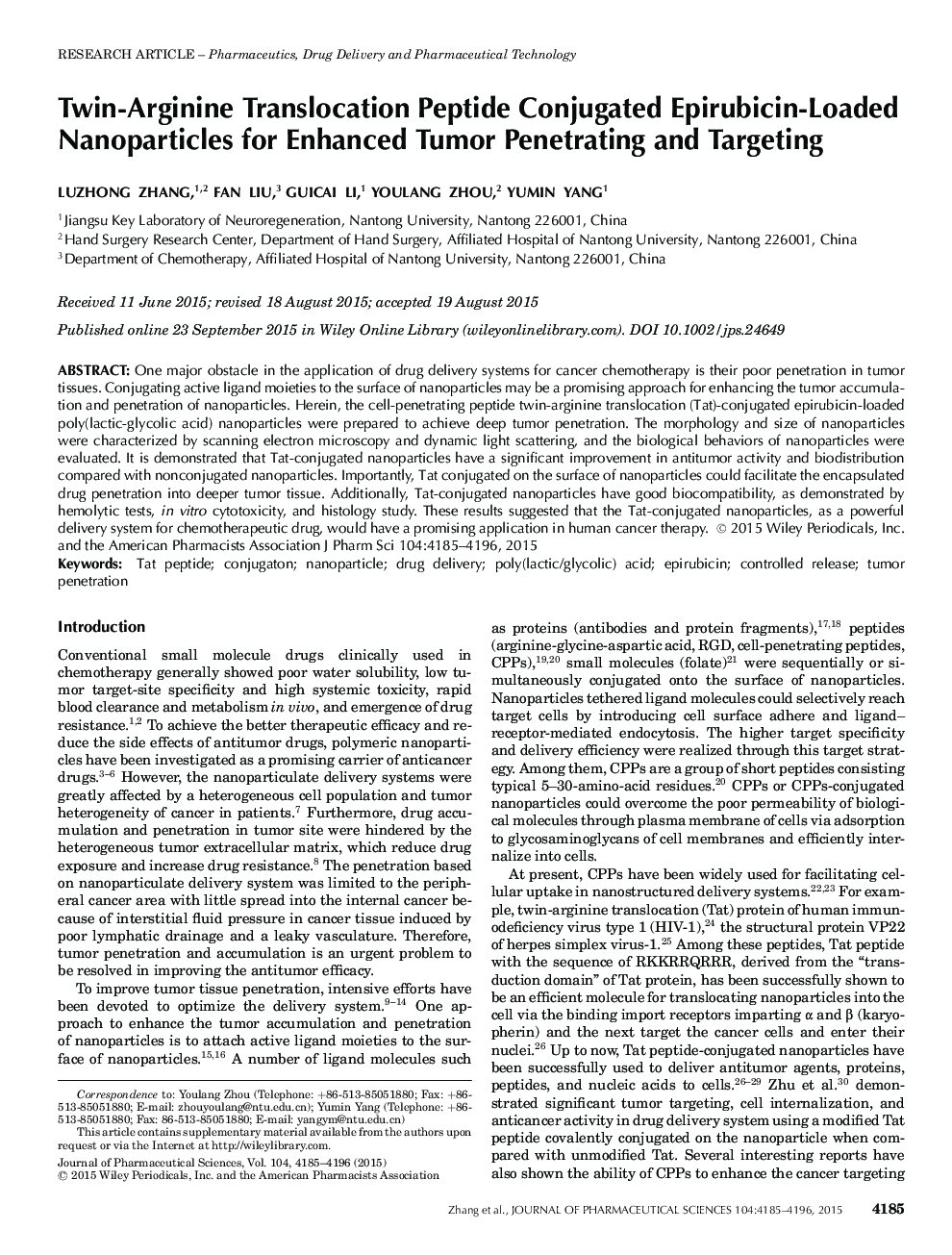| Article ID | Journal | Published Year | Pages | File Type |
|---|---|---|---|---|
| 10161944 | Journal of Pharmaceutical Sciences | 2015 | 12 Pages |
Abstract
One major obstacle in the application of drug delivery systems for cancer chemotherapy is their poor penetration in tumor tissues. Conjugating active ligand moieties to the surface of nanoparticles may be a promising approach for enhancing the tumor accumulation and penetration of nanoparticles. Herein, the cell-penetrating peptide twin-arginine translocation (Tat)-conjugated epirubicin-loaded poly(lactic-glycolic acid) nanoparticles were prepared to achieve deep tumor penetration. The morphology and size of nanoparticles were characterized by scanning electron microscopy and dynamic light scattering, and the biological behaviors of nanoparticles were evaluated. It is demonstrated that Tat-conjugated nanoparticles have a significant improvement in antitumor activity and biodistribution compared with nonconjugated nanoparticles. Importantly, Tat conjugated on the surface of nanoparticles could facilitate the encapsulated drug penetration into deeper tumor tissue. Additionally, Tat-conjugated nanoparticles have good biocompatibility, as demonstrated by hemolytic tests, in vitro cytotoxicity, and histology study. These results suggested that the Tat-conjugated nanoparticles, as a powerful delivery system for chemotherapeutic drug, would have a promising application in human cancer therapy.
Keywords
Related Topics
Health Sciences
Pharmacology, Toxicology and Pharmaceutical Science
Drug Discovery
Authors
Luzhong Zhang, Fan Liu, Guicai Li, Youlang Zhou, Yumin Yang,
